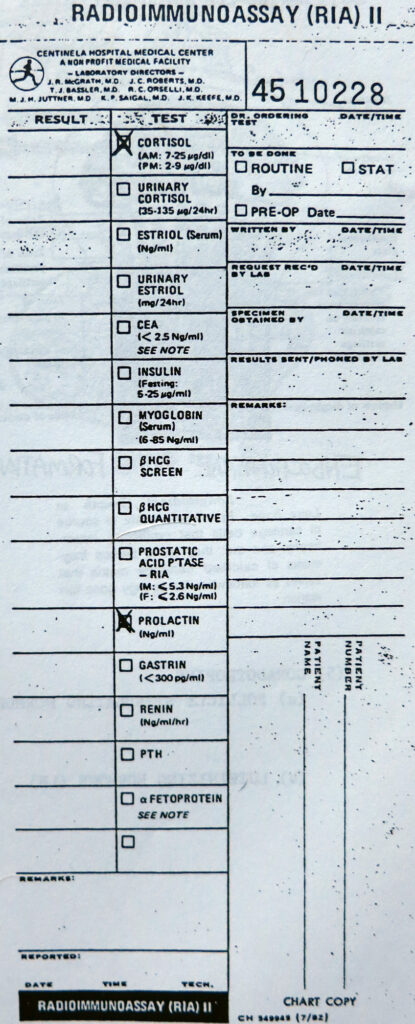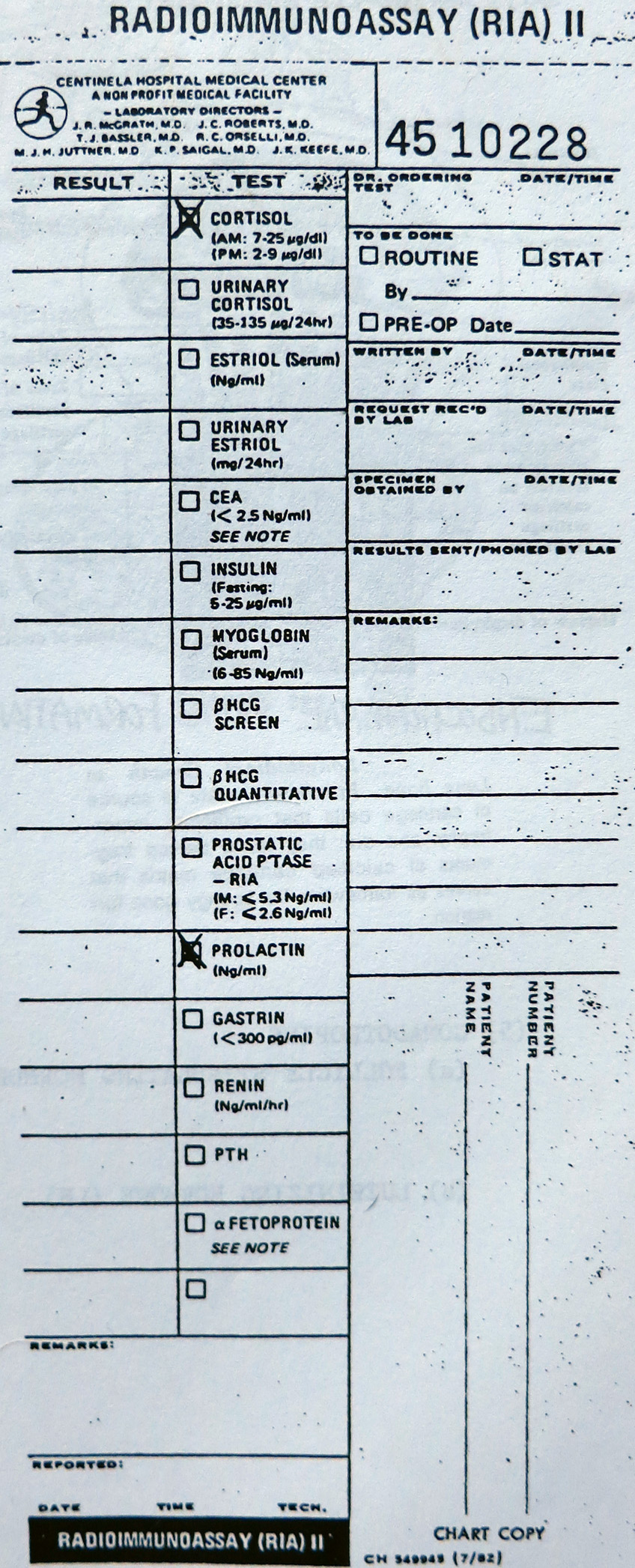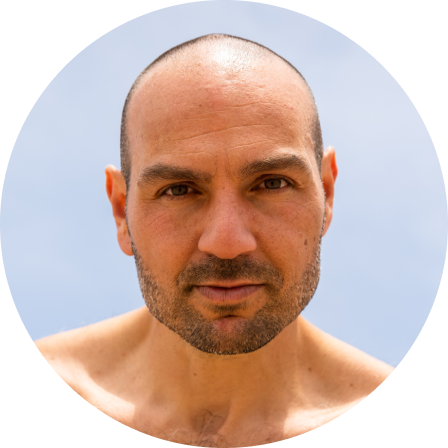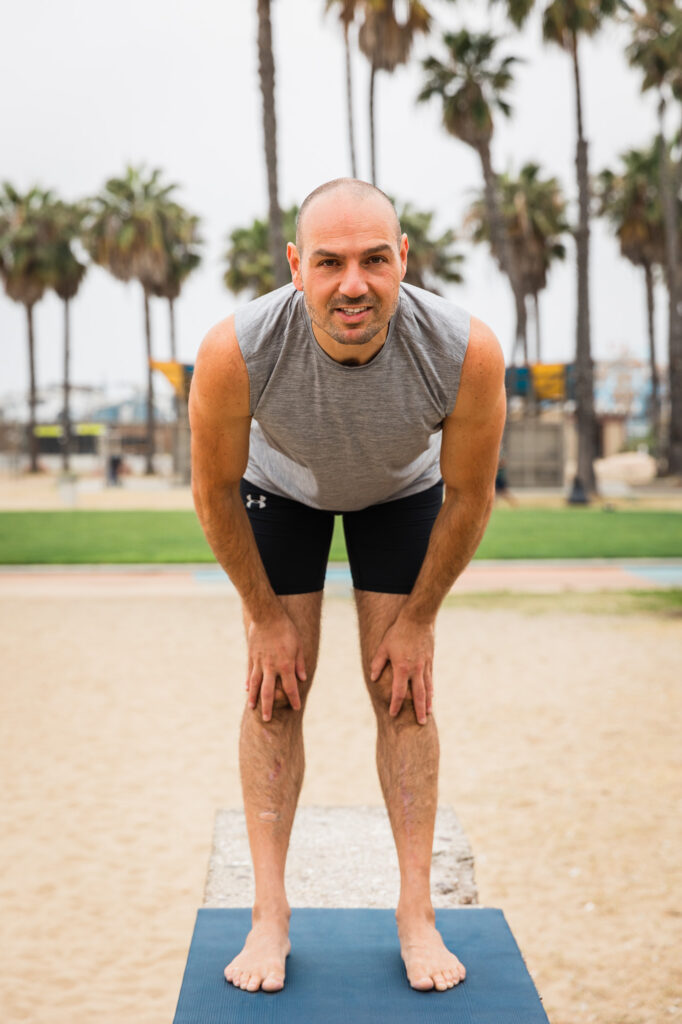Stress and Cortisol

 On the right is a lab form for testing hormone levels in the body and it’s all done by RIA. The very first hormone listed is cortisol. Notice it shows the cortisol levels are different between night (PM) and day (AM). It’s higher when you wake up, generally in the morning (unless you work graveyard shift). On a typical day, the most stressful thing you do is get up in the morning because you’ve been lying peacefully in the world for 6+ hours and then you WAKE UP and all of a sudden, gravity is affecting you, you gotta study for physiology, deal with the boss at work, personal relationships, you don’t have enough money for gas and all of a sudden you’re totally STRESSED. Because of that stress of getting up, that’s why the cortisol level rises. Then your cortisol levels decline throughout the day. For this reason, prednisone, which mimics cortisol, is supposed to be taken when one wakes up, presumably in the morning.
On the right is a lab form for testing hormone levels in the body and it’s all done by RIA. The very first hormone listed is cortisol. Notice it shows the cortisol levels are different between night (PM) and day (AM). It’s higher when you wake up, generally in the morning (unless you work graveyard shift). On a typical day, the most stressful thing you do is get up in the morning because you’ve been lying peacefully in the world for 6+ hours and then you WAKE UP and all of a sudden, gravity is affecting you, you gotta study for physiology, deal with the boss at work, personal relationships, you don’t have enough money for gas and all of a sudden you’re totally STRESSED. Because of that stress of getting up, that’s why the cortisol level rises. Then your cortisol levels decline throughout the day. For this reason, prednisone, which mimics cortisol, is supposed to be taken when one wakes up, presumably in the morning.
Question: If cortisol is highest in the morning due to the relative stress of going from a peaceful sleep to a waking state and dealing with life, then why is prednisone, which mimics cortisol, supposed to be taken in the morning if it’s already highest then? Wouldn’t that cause an excess of cortisol?
Answer: Prednisone is a tricky drug. In general, one should take it at the same time everyday, no matter what time it may happen to be, to keep blood levels even. Once someone has been taking it for awhile, even for a short time like two weeks for an acute illness (e.g., asthma attack) they have to be tapered off of it so the cardiovascular system doesn’t just bottom out (as in blood pressure). That having been said, each person will also react differently to the timing of the dose. A lot of people actually have trouble sleeping if they take it later in the day, so that is a lot of the reasoning for AM dosing. In short, prednisone should be taken in the morning, since this coincides with the body’s own rhythm of cortisone production.
How does stress make you sick?
Imagine you took a shower and your hair’s all wet and you’re going to go outside in the cold. Your mother has told you not to do that because you might get a cold. If you’ve had microbiology, they say that the cold isn’t you’re getting a cold since it takes a bacteria or virus to do that. So who is right? Your mother is always right. That’s why physiology is more important than microbiology (don’t tell that to your micro professor). Obviously viruses cause a cold, but when you go outside and you get chilly, that stress increases the cortisol which reduces our immune response. Not getting enough sleep, being in an area with a lot of noise, and even sometimes going out in the cold with a wet head of hair, all cause an increase in stress, making you more vulnerable because your immune system is weaker than normal. Cortisol is the classic explanation as far as we all know that stress, for any reason, makes us more vulnerable.






